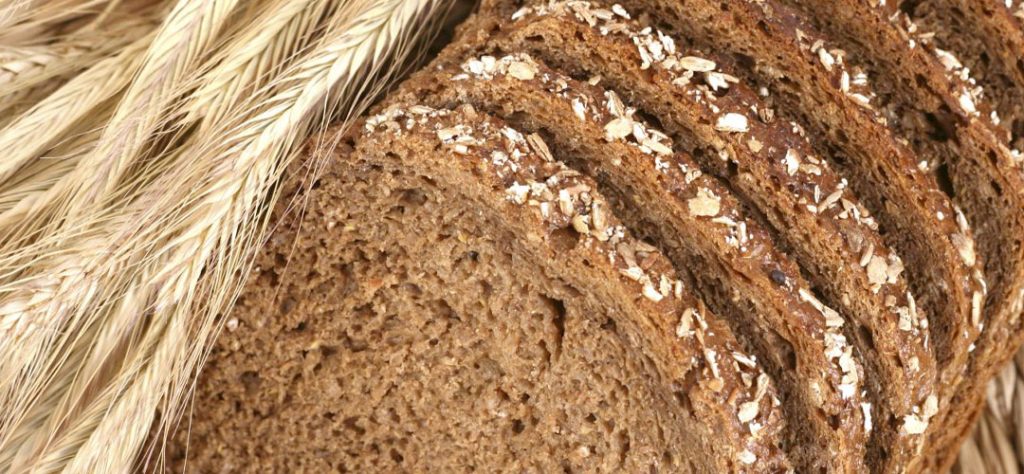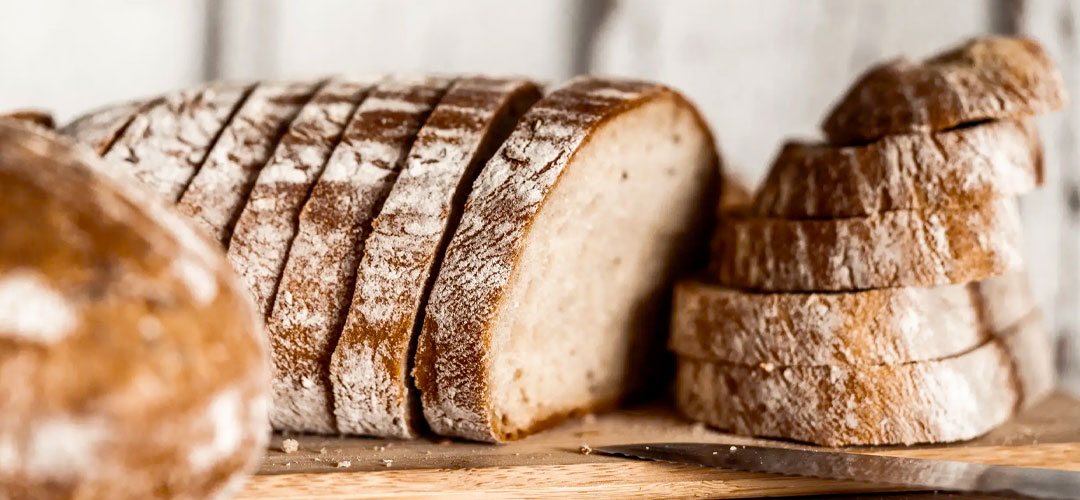When it comes to bread, two popular options that often spark debate are sourdough and rye.
While both have been enjoyed for centuries, they offer distinct textures, flavours, and potential health benefits. But which one is truly better for you?
In this blog, we’ll compare sourdough and rye, looking at their nutritional content, health benefits, and which one may be the right choice for your diet and taste preferences.
What is Sourdough Bread?
Sourdough is a type of bread made from a naturally fermented dough, using wild yeast and lactic acid bacteria. Unlike other bread types that rely on commercial yeast, the fermentation process in sourdough gives it its unique tangy flavour and chewy texture. Sourdough can be made with different flours, but it’s typically crafted with white or whole wheat flour. The slow fermentation process not only enhances the flavour but also increases the bread’s digestibility and nutritional value.
Health Benefits of Sourdough Bread
Sourdough has become a popular choice for many health-conscious individuals, and for good reason. Some of the key benefits include:
- Improved Digestibility: The fermentation process breaks down gluten, which can make sourdough easier to digest for people with mild gluten sensitivities.
- Lower Glycaemic Index: The wild yeast and bacteria in sourdough help to lower its glycaemic index (GI), which means it has a slower impact on blood sugar levels compared to other breads.
- Rich in Probiotics: The natural fermentation process leads to the production of beneficial bacteria, making sourdough a source of probiotics. These bacteria can help improve gut health.
- Higher Nutrient Availability: The fermentation process also helps to break down phytic acid, which can inhibit the absorption of certain minerals, making the nutrients in sourdough more bioavailable.
What is Rye Bread?
Rye bread is made using rye flour, which comes from a grain closely related to wheat. Rye flour has a denser texture and a distinct flavour, often described as earthy and slightly sour. Rye bread is commonly found in two varieties: light rye (made with a mixture of white flour and rye) and dark rye (made predominantly with whole rye flour). While rye is typically denser than wheat, it is often a preferred option for its unique taste and health benefits.
Health Benefits of Rye Bread
Rye bread has several potential health benefits, making it a great addition to a balanced diet. Here are some key advantages:
- Higher Fibre Content: Rye bread, particularly whole rye bread, is a good source of dietary fibre, which is essential for digestive health and can help promote regular bowel movements.
- Lower Glycaemic Index: Like sourdough, rye bread also has a lower glycaemic index compared to traditional white bread. This makes it a good option for those looking to manage blood sugar levels.
- Rich in Antioxidants: Rye contains antioxidants like lignans, which have been shown to have anti-inflammatory properties and may help protect against chronic diseases such as heart disease and cancer.
- Better for Weight Management: The high fibre content in rye bread helps to promote a feeling of fullness, which can reduce overall calorie intake and support weight management.
Sourdough vs. Rye: Which is Better for You?
While both sourdough and rye offer health benefits, choosing which one is better for you largely depends on your dietary needs, preferences, and specific health goals. Let’s break it down:
Nutritional Comparison
When comparing the nutritional aspects of sourdough and rye, it’s important to note that both options are healthier than traditional white bread. However, there are some differences:
- Sourdough: The nutritional content of sourdough varies depending on the flour used, but in general, sourdough provides a good amount of carbohydrates, protein, and some vitamins and minerals like B vitamins and iron. It is also lower in glycaemic index, making it suitable for those looking to control their blood sugar levels.
- Rye: Rye bread is often denser and higher in fibre compared to sourdough. The high fibre content aids digestion and supports heart health. Rye also has a unique profile of antioxidants, including lignans, which provide additional health benefits.

Digestibility and Gut Health
Both sourdough and rye offer benefits for digestive health, but they work in slightly different ways:
- Sourdough: The natural fermentation process makes sourdough bread easier to digest and increases its probiotic content. The beneficial bacteria produced during fermentation can help maintain a healthy gut microbiome and may aid in digestion.
- Rye: Rye bread, particularly when made with whole grain rye, is rich in soluble fibre, which can support gut health and help regulate bowel movements. Rye also promotes a feeling of fullness, which can aid in appetite control.
Taste and Texture
When it comes to taste, sourdough and rye are quite different:
- Sourdough: Known for its tangy, slightly sour taste, sourdough has a chewy texture and a complex flavour due to the long fermentation process.
- Rye: Rye bread has a denser texture and a distinct, slightly earthy flavour. The flavour is less tangy compared to sourdough, but it can still have a slight sourness, especially in whole grain varieties.
Which One Should You Choose?
Deciding between sourdough and rye ultimately comes down to personal preference and dietary goals:
- Choose Sourdough if: You prefer a bread with a chewy texture and tangy flavour, and you’re looking for bread with potential probiotic benefits that may support gut health. It’s also a great option for those with mild gluten sensitivity or who want to manage blood sugar levels more effectively.
- Choose Rye if: You’re looking for a bread with a rich, earthy flavour and higher fibre content that can aid digestion and support heart health. Rye is an excellent choice for those looking to improve their overall nutrient intake and maintain a feeling of fullness.

Conclusion
Both sourdough and rye bread have unique health benefits and distinct flavours, making them worthy additions to your diet. Whether you choose sourdough for its probiotics and lower glycaemic index, or rye for its high fibre content and antioxidant properties, both options offer significant advantages over traditional white bread. Ultimately, the choice between sourdough and rye comes down to personal preference and dietary needs. If you’re looking to compromise, some retailers even offer combinations of both sourdough and rye bread, allowing you to enjoy the best of both worlds. Whatever you decide, opting for whole-grain versions and enjoying these breads in moderation is a great way to boost your health and savour delicious flavours.






